In most schools, the playground is a space where often unconscious inequalities between girls and boys are expressed. Boys occupy most of the central space, dominating the soccer fields and basketball courts, while girls tend to stay on the periphery, playing more static games. When they try to join in ball games, they are often rejected or considered too fragile. Conversely, boys may also feel limited by implicit norms that assign them more competitive and dynamic activities. These differences are not insignificant: they reflect and reinforce gender stereotypes that influence interactions from an early age.
To address this issue, PLAY International, in partnership with the Alice Milliat Association, has developed the “Mixité dans la cour de récré” (Gender Diversity in the Playground) educational kit. This tool aims to raise awareness among Cycle 3 students about gender stereotypes through a participatory approach that places them at the heart of the transformation process.
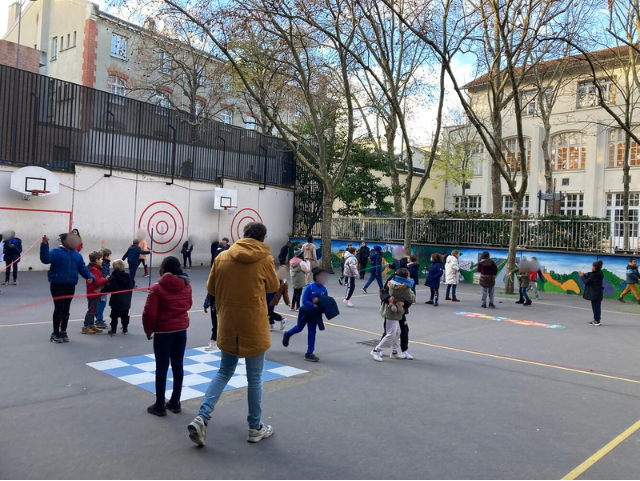
The briefcase, a practical educational tool for transforming the playground
The kit follows a series of workshops, enabling students to become aware of inequalities in the playground, understand the mechanisms behind them, and take concrete action to change their practices:
1. Assessment of the playground: Students observe and analyze their playground space by identifying who occupies which spaces and what the dynamics of play are.
2. Awareness through play: A Playdagogie session is held to encourage students to experiment with gender stereotypes through play and question them.
3. Raising awareness through images: A video on the role of women in sport is shown, followed by a guided discussion to challenge preconceived ideas and put the evolution of social roles into perspective.
4. Creating mixed games: Armed with their new knowledge, students put their learning into practice by designing new games that promote better use of space and more inclusive interactions. To structure this process, they use a game board and a set of cards specially designed to guide them in developing their own activities. By drawing cards such as “Action,” “Rules,” “Universe,” “Mission,” and “Game Mode,” they explore different ways of designing games that encourage cooperation, diversity, and equitable sharing of space. This process allows them to experiment with an active and collective approach, where girls and boys participate equally in creation and decision-making.
5. Experimentation and transmission: The games created are tested in the playground, adjusted, and then passed on to other students at the school to ensure their continued use.
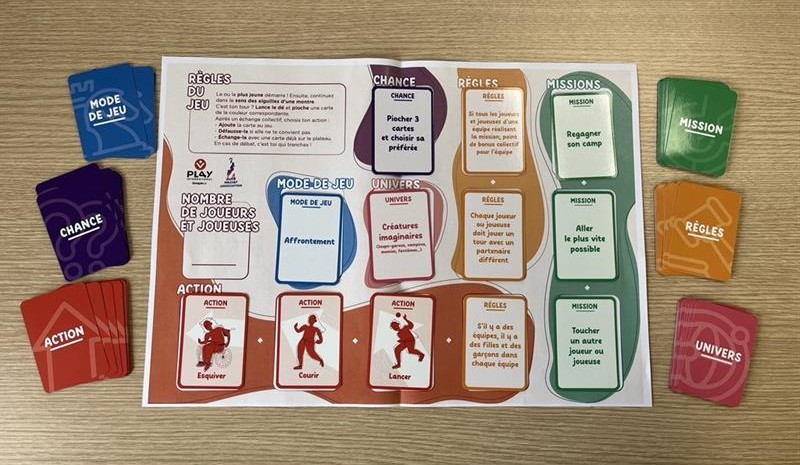
At the end of the program, a collective evaluation is conducted to observe changes in the use of the playground and analyze how the children's learning has been translated into practice.
A classroom testing phase to refine the method
Before being rolled out on a larger scale, the kit was tested in several schools in Saint-Denis and Antony. This pilot phase allowed us to observe the initial reactions of the students and adapt the educational tools to the reality on the ground. The workshops helped children become aware of the unequal distribution of space, verbalize their feelings, and question the gender stereotypes that influence their behavior.
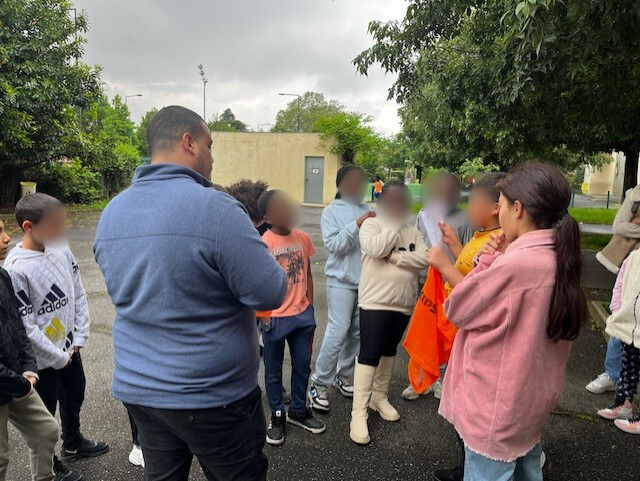
A deployment to test the autonomous use of the kit by teachers
Following this pilot phase, the kit is now entering a new stage of deployment. On March 19, we presented the tool to a group of teachers interested in implementing it, and 100% of participants committed to using it in their schools.
The objective of this phase is to assess teachers' ownership and autonomy in facilitating the sessions. To this end, we will provide them with all the necessary teaching tools, including the teaching guide, video resources, card game, and game board. Remote monitoring will be put in place to support implementation, gather feedback, and identify any necessary adjustments.
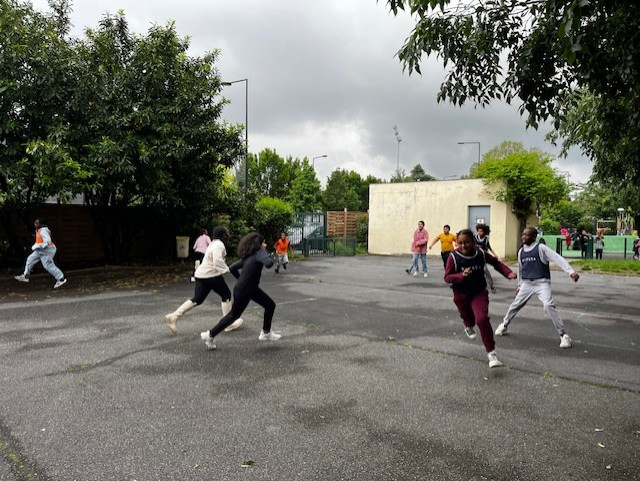
Ultimately, the ambition is to expand its deployment so that more schools can adopt it and promote more inclusive and mixed playgrounds throughout France.
 FR
FR EN
EN